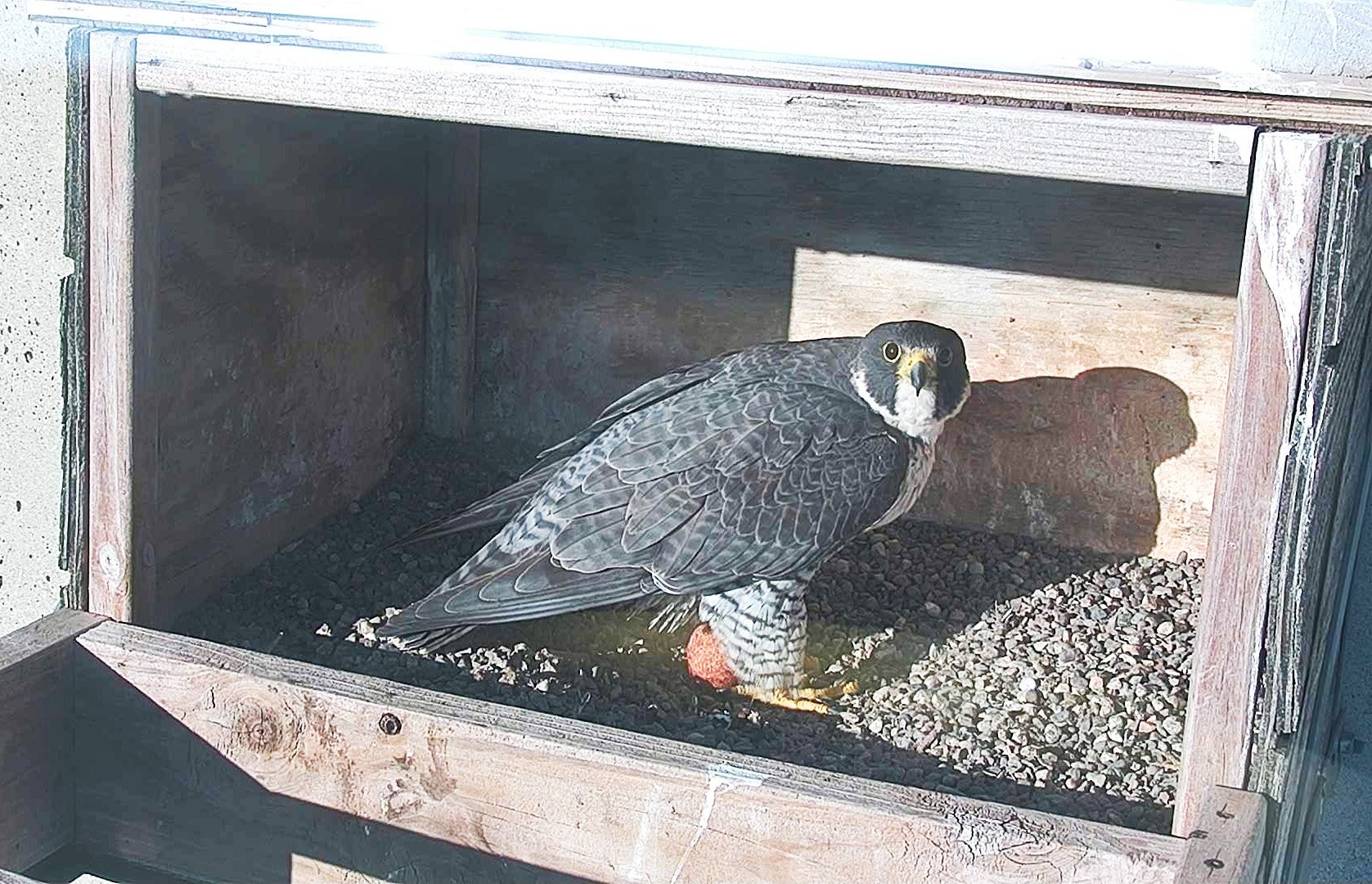Dairyland Power's Peregrine Falcon Restoration Program
Dairyland’s Peregrine Falcon Restoration Program began in the 1990s and, since then, nearly 170 falcons have fledged from the Alma and Genoa sites combined! This is a great testament to the power of collaboration between industry and the environment.
Check out a news article about successful partnerships Dairyland has been part of to support the return of Peregrine Falcons to the Driftless Region: Peregrine falcon population rebounds in Wisconsin, Minnesota (lacrossetribune.com)
2025 Nesting Season Summary
On March 26, an unbanded falcon was spotted in Dairyland's falcon box in Alma with one egg. The bird is unbanded, leading biologists to believe it is a returning bird from the 2024 nesting season. Peregrine falcon pairs work together incubating and, later, feeding the chicks; female Peregrine falcons are larger than males.
In June, Dairyland and the Raptor Resource Project banded the four chicks using tags with codes on them to denote the sex and banding location of each falcon. These codes help track and monitor birds after they fledge. A naming contest among Dairyland employees was won by Fleet Operations Coordinator Nikki Sobotta with “The Featherstones” – Pebbles, Bam-Bam, Barney and Fred.
Be sure to check back in 2026 for the relaunch of the Falcon Cam when the falcons return in February.
